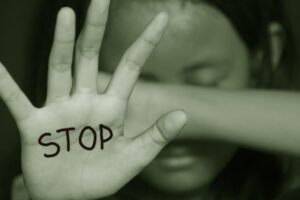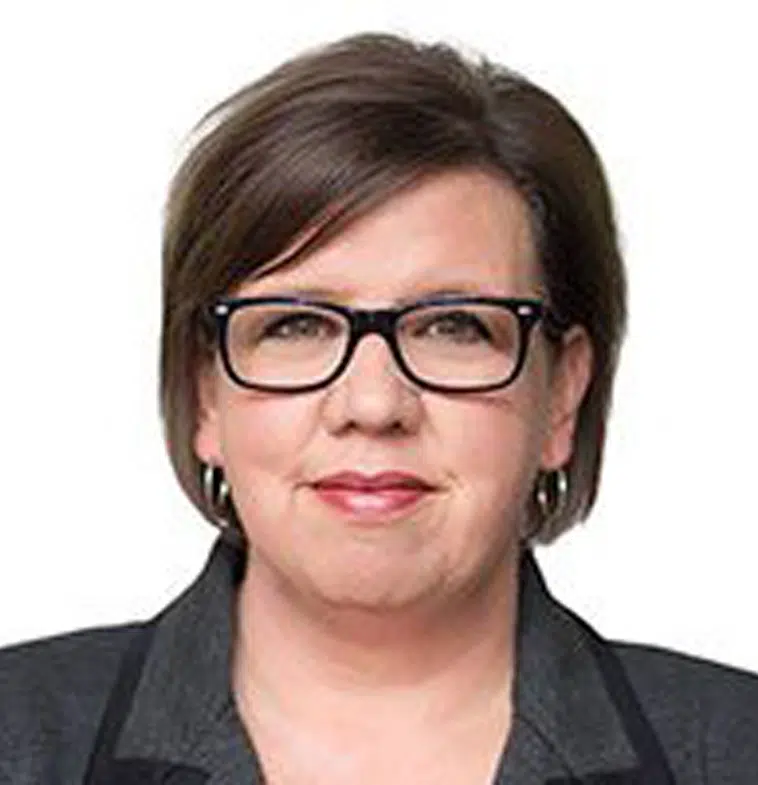
For four long years, Stephanie was known only by the name her trafficker gave her when he enslaved her at age 13. Her trafficker beat her and continually manipulated her emotionally. He constantly warned that he would enslave her 10-year-old sister unless Stephanie kept the customers satisfied.
Her story is, in many ways, sadly typical: the older boy taking an interest in the younger girl, persuading her that their relationship is “fate,” promising to marry her, buying her nice things, and then demanding that she dance in a strip club to help him out of a financial jam.
“It was degrading, but I did it ‘for us,’” Stephanie says. When he demanded that she sell herself for sex, she refused — and he threw her out of the house on a bitterly cold night. She could sell, or she could freeze to death.
Arrests and returns became a cycle. At one point, the trafficker brutally assaulted Stephanie in front of her own home. While she was hospitalized, a probation officer asked Shared Hope International to find a safe place where professionals had the skills to address her many needs. The closest such place was 3,000 miles away. Shared Hope moved her across the country, and gave her a new name for protection. Having been loved, cared for and counseled, she now shares her story to protect other girls.
Stephanie’s story is not unique. In fact, sex trafficking is a booming industry in America. It thrives because there is a serious demand for commercial sex with minors. Every day in America children are being bought and sold for sex. This is not a problem that is limited to third world or developing countries, it is happening right here at home in every state in the nation and crosses all socio-economic boundaries.
Sex trafficking occurs when someone uses force, fraud or coercion to cause a commercial sex act with an adult or causes a minor to commit a commercial sex act. That act can include prostitution, pornography and sexual performance done in exchange for any item of value, such as money, drugs, shelter, food or clothes. The worst part about it is the fact that the industry continues to grow and thrive because there’s serious demand.
According to the National Human Trafficking Hotline, there have been 13,897 calls to the hotline and 4,460 cases of human trafficking reported in the United States this year alone. Of those cases, 3,186 were sex trafficking, and of those cases, 1,438 involved minors.
 Approximately 1.2 million girls and boys are trafficked each year. The victims are not all runaways or previously abused minors. Traffickers find their victims through social networks, home neighborhoods, clubs or bars, the internet, and even school. They lure these victims through promises of protection, adventure, love, home, or opportunities and once they have them under their control they use violence, fear, threats, and intimidation to keep them in line. The common age that a child is lured into service is between the ages of 10-16, when they are far too young and naïve to realize what’s actually happening.
Approximately 1.2 million girls and boys are trafficked each year. The victims are not all runaways or previously abused minors. Traffickers find their victims through social networks, home neighborhoods, clubs or bars, the internet, and even school. They lure these victims through promises of protection, adventure, love, home, or opportunities and once they have them under their control they use violence, fear, threats, and intimidation to keep them in line. The common age that a child is lured into service is between the ages of 10-16, when they are far too young and naïve to realize what’s actually happening.
In efforts to stop trafficking once and for all, Shared Hope International works hand in hand with federal lawmakers to strengthen laws so buyers and traffickers go to jail and victims are protected. This contrasts with laws in many states that penalize the child sex slave and let the customers escape without penalty. The organization works to teach minors the tactics of traffickers so they can avoid dangerous situations. They also train professionals on the ways to interpret the signs of trafficking to identify victims. Shared Hope focuses on protecting children on a local level by working with parents, youth workers, community leaders, and teens on how traffickers operate and how they can protect themselves and their friends.
Shared Hope’s story began in 1998 when U.S. Congresswoman Linda Smith traveled into the heart of a notorious brothel district in Mumbai, India. The brutal sexual slavery and exploitation of women and children she witnessed there inspired her to establish Shared Hope International to help bring healing to devastated lives.
“I found children younger than my granddaughter, not even teenagers, being sold by the sex act and by the minute. I couldn’t believe it. I had to do something,” Congresswoman Smith said. “It was the search for answers and the need for justice that guided my decision to start Shared Hope International.”
According to Shared Hope’s 2016 Annual Report, last year the organization was able to supply grants and technical assistance to 11 partners in the U.S., supporting their ability to provide the following services to survivors:
- outreach and counseling
- shelter and therapeutic care
- textbook scholarships
- virtual mentoring where services may not be available locally
- bi-lingual case management
- group case management
- therapeutic foster care
The organization was also able to reach 2,229 first responders, service providers and community members through 33 trainings, and train 228 new Ambassadors of Hope from 42 states. Overall in 2016, Shared Hope was able to reach 779,413 people through prevention education events, and the organization was able to partner with 16 shelter and service organizations in four countries to bring education, job skills, housing, medical care and freedom to 431 survivors.
Shared Hope International is just one example of the amazing work that is being done to rescue and empower survivors. Human slavery is wrong, and sex trafficking of children is absolutely not acceptable. Leading Women co-author and founder of the Women Like Us foundation, Linda Rendleman, has started a crowdfunding campaign to support Shared Hope and many women-led causes and charities who are fighting sex trafficking in their communities or nationally. All of the work that is currently being done is proof we can eradicate these horrifying statistics, but only if we work together.
If you feel that someone you know is a victim of sex trafficking, call the National Human Trafficking Hotline at 1-888-373-7888. To learn more about sex trafficking and ways you can help, check out our post with resources and partners.

